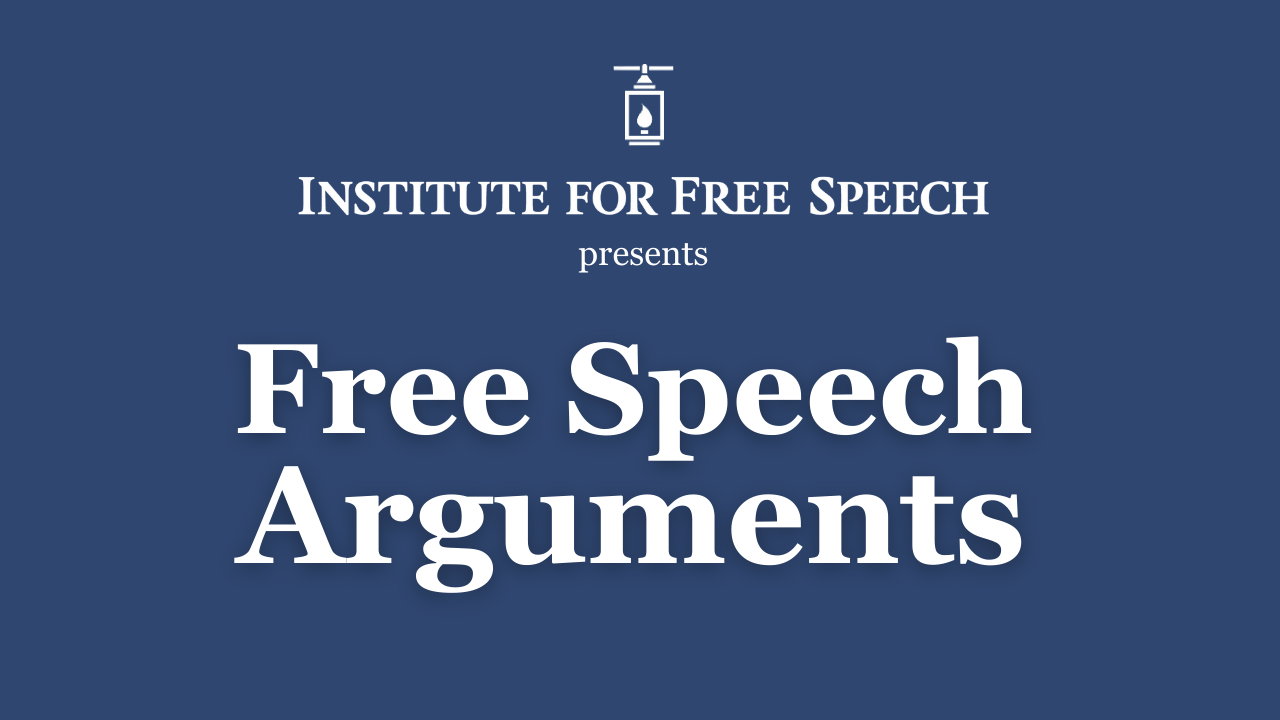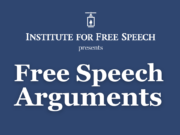Episode 35: Gays Against Groomers, et al. v. Garcia, et al.
Gays Against Groomers, et al. v. Garcia, et al., argued before Judges Joel M. Carson, David M. Ebel, and Richard E. N. Federico in the U.S. Court of Appeals for the Tenth Circuit on September 10, 2025. Argued by Institute for Free Speech Senior Attorney Del Kolde (on behalf of Gays Against Groomers, et al.) and Edward T. Ramey (on behalf of Garcia, et al.)
Background of the case [from the Institute for Free Speech case page]:
Colorado legislators’ actions to suppress and ban disfavored speech during public comment time on HB24-1071, dubbed “Tiara’s Law,” represent an alarming assault on First Amendment rights.
Trans ideology requires adherents to use a trans-identifying person’s preferred pronouns and adopted trans name. Doing otherwise is called “misgendering” or “deadnaming.” During hearings on what its sponsors called “Tiara’s Law” certain legislators required that all speakers refrain from misgendering or deadnaming and engage only in “respectful discourse.” Speakers who failed to comply were interrupted, cut off, and prevented from expressing their opinions, including that “Tiara” is a male felon who illustrates why name changes should not be so easy. One speaker even had her testimony erased from the public record.
That’s why Institute for Free Speech attorneys filed a federal lawsuit on behalf of the group Gays Against Groomers, the Rocky Mountain Women’s Network, and individuals from those groups affected by this attempt to shut down debate over transgender legislation.
The lawsuit, filed in the U.S. District Court for the District of Colorado, named Colorado State Representatives Lorena Garcia, Mike Weissman, Leslie Herod, and State Senators Julie Gonzales and Dafna Michaelson Jenet as having unlawfully restricted or chilled speech related to trans issues, particularly as it pertains to debate over “Tiara’s Law.”
Statement of the issues [from the Appellants’ Opening Brief]:
- Does the First Amendment prohibit state actors from engaging in viewpoint discrimination during the public comment portions of legislative committee hearings, which the parties agree are limited public fora?
- Do legislators enjoy absolute legislative immunity for enforcing a viewpoint-based censorship regime during a public comment period on pending legislation that results in the silencing of individuals who dissent from transgender ideology, including the concepts of “misgendering” and “deadnaming?”
- Is legislative immunity a personal defense available to legislators sued in their official capacities for declarative and injunctive relief?
- Are claims for injunctive and declaratory relief moot where defendant legislators still maintain vague and subjective decorum rules, have previously censored disfavored views on a current topic, do not disavow future enforcement, and have erased, but not restored, a public comment due to the viewpoint expressed?
- In a case involving a dispute about transgender ideology, is it unlawful and prejudicial for the district court to require parties and their counsel to adhere to transgender ideology, including to conform their speech to the ideology by mandating the use of preferred pronouns contrary to their conscience and providing for a reporting mechanism for those who do not comply?
Resources:
- Institute for Free Speech Case Page
- Appellants’ Opening Brief
- Appellees’ Answer Brief
- Appellants’ Reply Brief
Listen to the argument here:
The Institute for Free Speech promotes and defends the political speech rights to freely speak, assemble, publish, and petition the government guaranteed by the First Amendment. If you’re enjoying the Free Speech Arguments podcast, please subscribe and leave a review on your preferred podcast platform.













